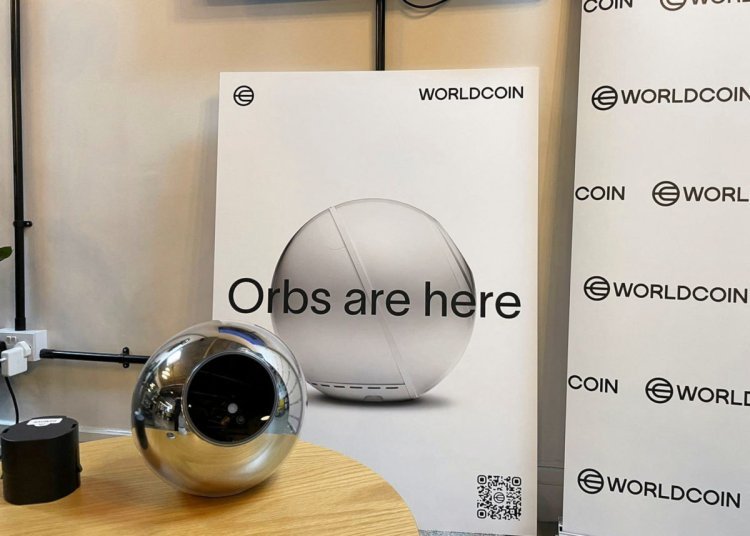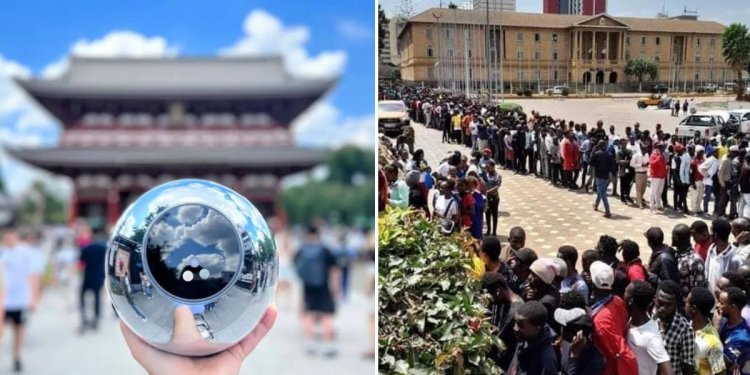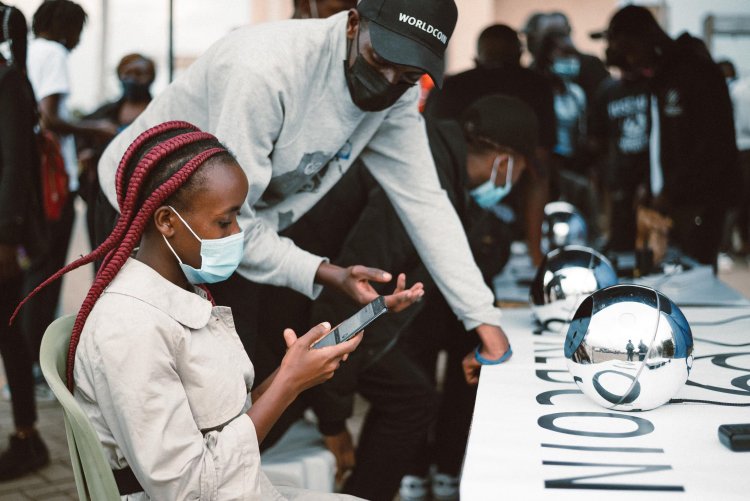Worldcoin Used 11 Companies To Carry Out Kenya Operations- Govt
This is as Kenya recorded the highest number of subscriptions in terms of users to Worldcoin out of 34 countries where similar data harvesting operations took place.

Worldcoin worked with at least 11 companies in Kenya since November 2022 as concerns continue to be raised regarding its methods of harvesting data from users in the country.
The Office of the Director of Computer and Cyber Crime revealed on Tuesday, August 29 that the American cryptocurrency firm under Sam Altman recruited agents who were deployed across 30 stations in Nairobi to scan and collect iris data for transmission.
Appearing before the National Assembly Adhoc Committee, the agency’s Head of Cyber-security Standards and Policy David Njoka revealed that Worldcoin cleverly masked itself as a research institution to make its entry to Kenya easier before it heightened its activities of data processing, putting the personal data of many gullible Kenyans at risk.
This is as Kenya recorded the highest number of subscriptions in terms of users to Worldcoin out of 34 countries where similar data harvesting operations took place.

A collage of a retina scanner (left) used during the registration exercise of Worldcoin in Kenya (right) where thousands queued outside KICC. /PHOTO.SETH OLALE
“A week after the launch of Worldcoin cryptocurrency on the 22nd of July, they announced that they have registered over 350,000 Kenyans and in terms of the numbers of data registered globally, Kenyans amounted to around 25 per cent which is something of concern,” revealed Njoka.
He told MPs that Worldcoin indicated that the data would be stored in Amazon Web Services in the United States (US) which poses a potential threat due to data sovereignty, even though they indicated that their data was secure.
Worldcoin had targeted to register eight billion people in the cryptocurrency platform that aims to provide a universal global economy by using retina/iris scans to authenticate the identity of individuals.
In Kenya, the local representatives identified as Wangechi Maina and Rael Mwende were contracted for Worldcoin's operations after legal agreements with their local firms listed as Platinum De Plus Limited, EXP Kenya and Sense Marketing.
The firm since November 2022 engaged in recruiting 11 companies who were assigned responsibilities of hiring casual agents who were trained to assist Kenyans in downloading the World Coin App and then have the iris captured.
Njoka also hinted that Worldcoin, through user verification of the iris, has had access to sensitive data whose safety is still not guaranteed even as the investigation continues.
“They don't have a physical office, I think they need to be investigated for doing what they were doing without necessary approvals.
“A multi-international company coming to Kenya to allege to be conducting research involving sensitive information and they wanted the data to be able to train their model in the artificial intelligence platform, they did this without having due approvals given to them,” Njoka expounded.
The cryptocurrency industry has been steadily growing in the country with over 4 million Kenyans active cryptocurrency users, with Njoka pointing out the alarming numbers of 350,000 registered users in one week in Kenya, making up 25 per cent of their customer base.
Worldcoin offered those who signed up 25 free tokens worth about Ksh7,000, drawing thousands of people to multiple sign-up points in the capital Nairobi, including at the Kenyatta International Convention Centre (KICC) in Nairobi in mid-July, with the huge queues of Kenyans waiting to scan their irises drawing the government's attention.
On Thursday, August 3, the Kenyan government suspended WorldCoin's operations in the country, citing data privacy concerns, with the Office of the Data Protection Commissioner (ODPC) noting that WorldCoin had not obtained the necessary permissions to collect personal data.
Worldcoin, set up by OpenAI chief executive Sam Altman, began operating in June in Germany and provides users with a private digital identity a “World ID” after they get their eye’s unique iris pattern scanned.
The project, according to its founders, aims to solve one of the main challenges facing the crypto industry which largely relies on pseudonyms to operate, leaving it vulnerable to spam bots and scams. More than 2.1 million people have signed up for Worldcoin across the world, with iris scans conducted in 34 countries, according to the company’s website.
Worldcoin is now trading at $2.37, up from the initial price of $1.70, according to CoinMarketCap, despite concerns that Kenya's directives to halt the iris scanning operations could plunge it into a negative business atmosphere globally.







